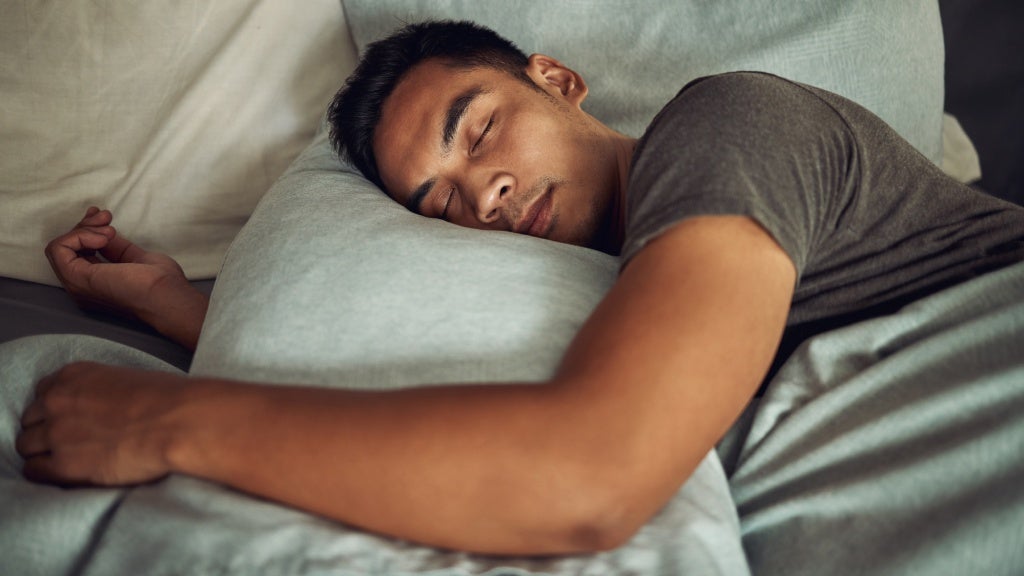How to sleep well before a fun run

Whether you are a great sleeper or someone who struggles to snooze well, sleeping the night before a fun run, like our Real Insurance Sydney Harbour 10&5K, can be challenging. Maybe your nerves are keeping you awake, or your mind is racing going over logistics for the morning, whatever it is don’t worry. We have some good news, one bad night sleep won’t affect your performance, says ASICS Running Coach Sam.
“Don’t stress about a restless sleep the night before race day. Anticipation and excitement can easily disrupt your routine. Instead, focus on getting a good night sleep two nights out,” he explains.
To do that, he says, start to look after your sleep hygiene in the weeks leading up to the race.
“Our bodies are huge fans of consistency, so try to establish a bedtime routine, as well as a consistent wake up time (no weekend sleep ins!). This will help your sleep quality and pattern,” he explains.
As well as this, Sam’s sleeping tips also include experimenting with ways to relax your body at night. These could include reading, meditation, listening to relaxing sleep music, or taking a bath. And if you feel it’s help, you could speak to your doctor about taking magnesium or valerian supplements in the evening to help relax your mind and body and prepare for sleep.
Sleeping tips for the night before a race
Hopefully by the time you’ve arrived at the night before your race, you’ve had a week or so of OK sleep. Now it’s time to concentrate on having a relaxing day, calming afternoon and a night of restful sleep. Here’s our guide for how to do just that.
STEP 1: Plan for success
If you can, make sure the day before your race is uneventful. Try to block your day so it doesn’t fill up, so you have enough time (and mental space) to get organised for your run. If you are travelling, try to arrive earlier in the day if you can, and if you’re travelling overseas, allow for a few days to adjust to the new time zone.
STEP 2: Focus on hydration
In the early part of the day, work on your hydration. Get in a good chunk of water before about 3-4pm, so you aren’t spending the night running between the bed and the toilet. Also avoid alcohol today and have your last coffee before lunchtime. This will help you wake up refreshed.
STEP 3: Prep for the race
To ease your mind and help you in the morning, layout your clothes, race bib, safety pin, socks and shoes. Anything you need to put on first thing. Then gather anything else you’ll be taking with you (chafe balm, sunscreen, water bottle, etc.) and pack the bag you’ll take. Make sure anything electronic is full charged. Lastly, go over all the directions for what you need to do in the morning to get to the starting line.
STEP 4: Plan your training
While some runners plan a rest day before a long run, if you’re training or doing any workout today, avoid doing it just before bedtime. Studies suggest that while doing exercise can help you sleep, getting your heart rate up by a workout within an hour of your bedtime will keep you from falling sleep and may affect the quality of your sleep all night long.
STEP 5: Don’t eat too much
Avoid a huge meal before you go to bed. Like sleep, your nutrition needs should be looked after in the days before the race, so have a meal you are familiar with and don’t try any new foods (especially if you are intolerant to certain foods).
STEP 6: Try to relax with a yoga sleep pose
A great way to release tension is the ‘legs up the wall’ yoga pose before bed. This pose improves circulation, relieves tired leg muscles, helps with backaches, and can also help calm you, preparing you for sleep. Simply lie on the ground with your buttocks right up again the wall and stretch your legs vertically up the wall so you are at a 90-degree angle. Couple this with some relaxing breathing techniques and you’re all set!
STEP 7: Consider a social media blackout
Often the day before a race is when you might be getting lots of supportive messages from friends and family, but this isn’t the time to get distracted or to get stuck on social media for hours. Consider turning off notifications, especially after 6pm when the blue light from your phone could affect your ability to fall asleep and sleep well.
STEP 8: Stick to your routine
Even if you are in a new hotel, or an unfamiliar city, try to stick to your normal bedtime routine. If you normally go to bed at 9pm, don’t hit the hay at 6pm, or 10pm. Try to follow your normal sleep schedule and don’t forget your body and room temperature play critical part in how easily you fall asleep. Try cooling your room down before hopping into bed to help you drift off.
26 Jun 2024